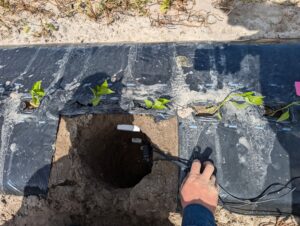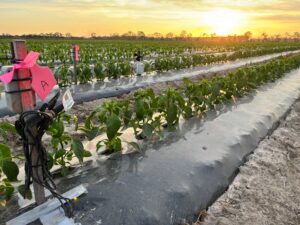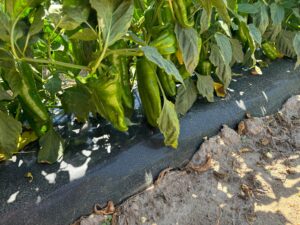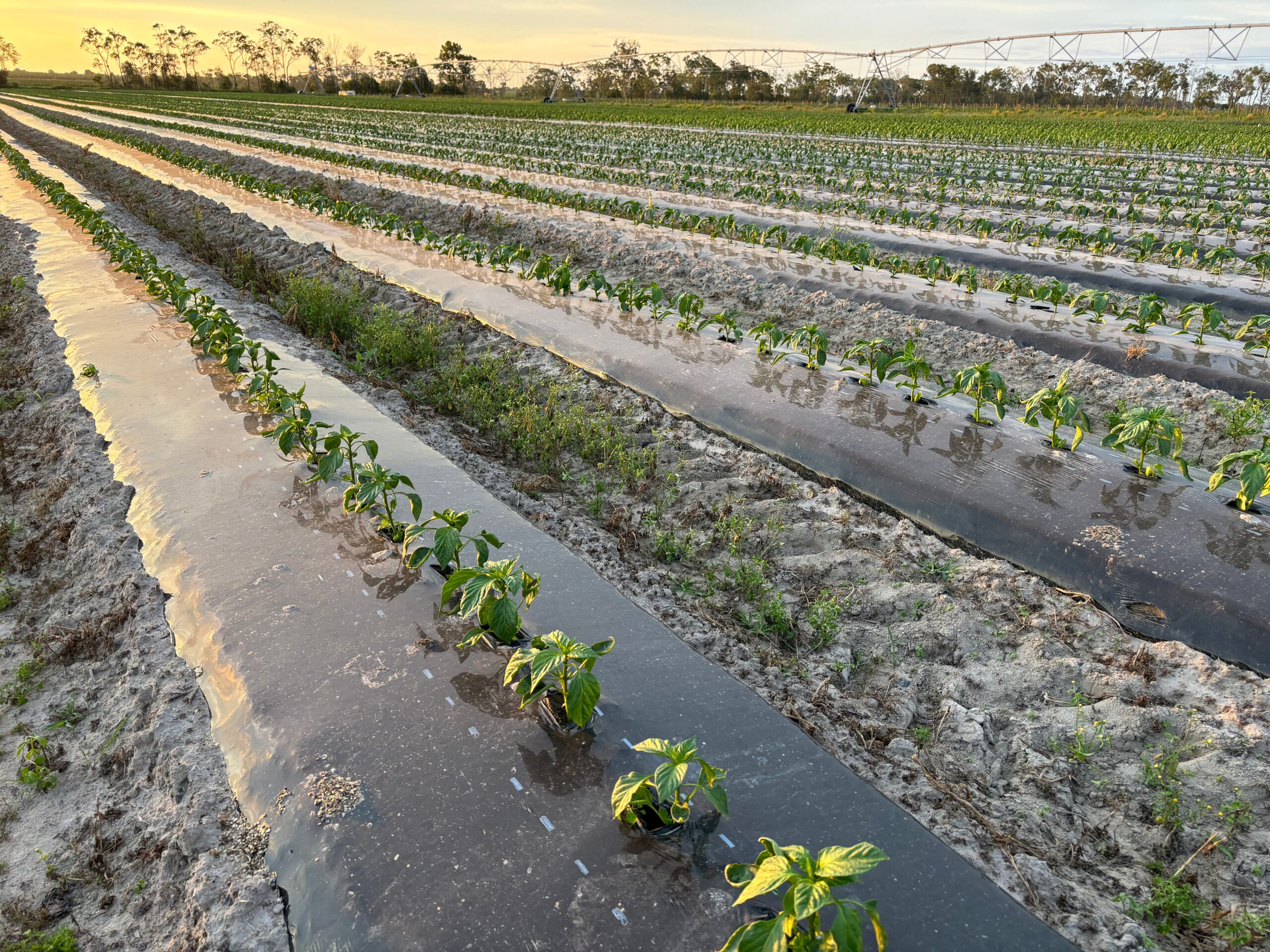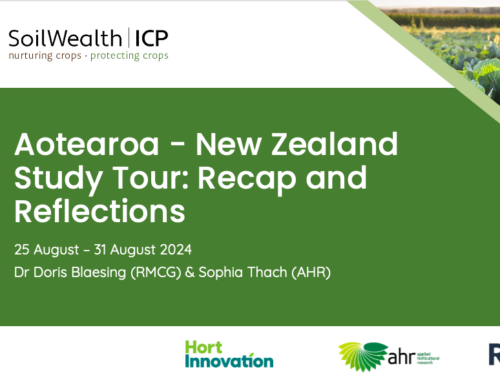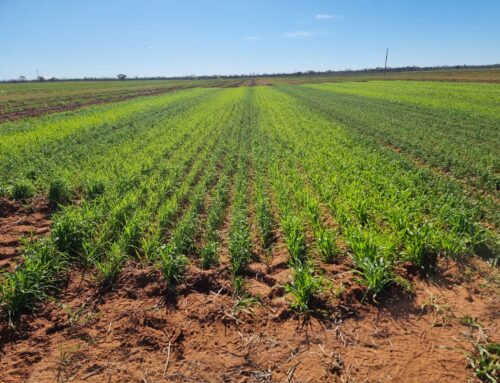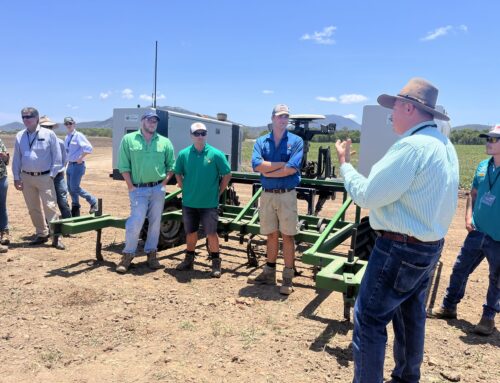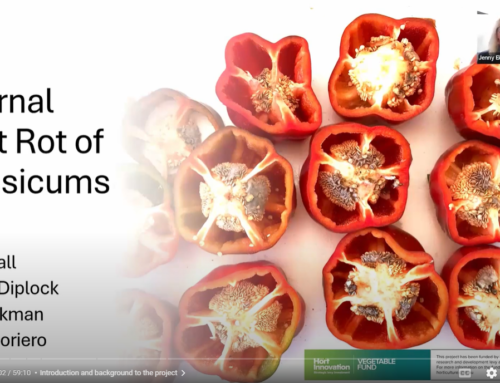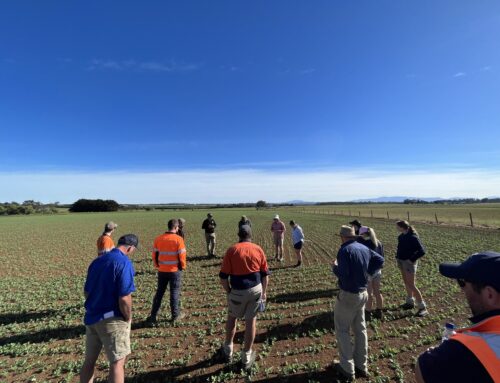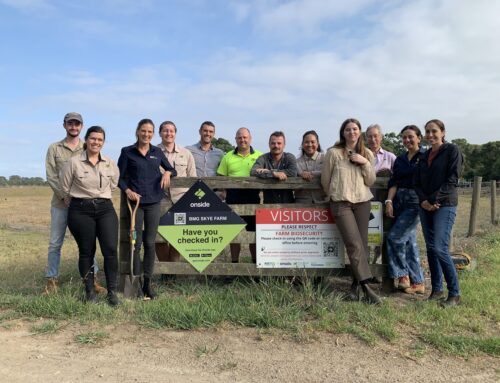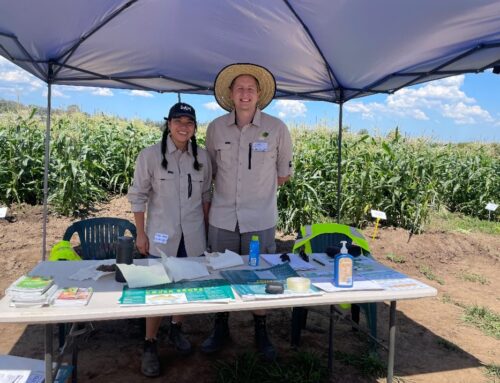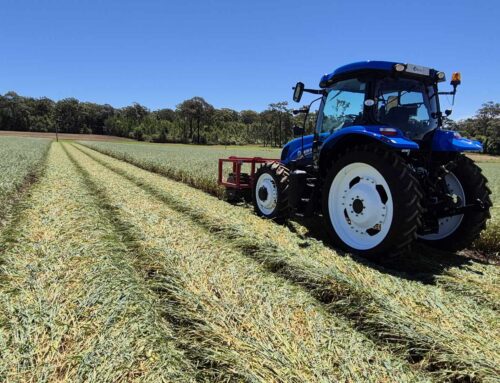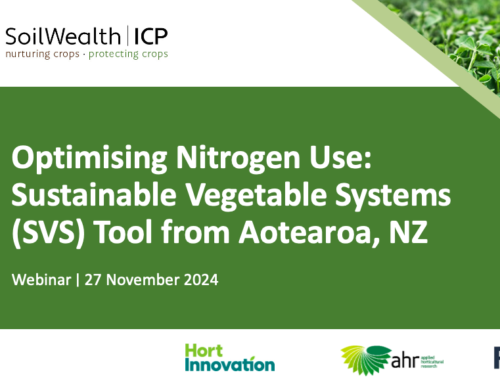The demonstration site, managed by Dr Naomi Diplock and Demetrio Bruno (AHR) at Cross Family Farms in Welcome Creek, QLD, has focused on optimising irrigation and nutrition practices for a capsicum crop grown on sandy soil using drip irrigation. The project aims to enhance water and nutrient use efficiency by refining application methods, timing, and monitoring tools. By addressing these critical areas, the grower hopes to reduce leaching, lower input costs, minimise environmental impact, and maintain or improve crop yield and quality.
The trial so far
The capsicum crop was planted in early September 2024 and monitored until the harvest concluded in December. To track irrigation cycles and soil moisture levels, probes were installed at three different depths in the soil profile. Additional tools, including anemometers and temperature and humidity probes, were used to monitor the microclimate within the crop, while a rain gauge recorded rainfall events throughout the growing season. Regular soil and tissue sampling provided ongoing data on nutrient levels, offering insights into the crop’s performance.
The initial findings revealed several opportunities for improvement in nutrient and water management practices. Nitrogen analyses established a nitrogen budget, while yield data collected over four harvest rounds provided a clearer understanding of crop outcomes. Calcium nitrate applications were made during the season to address emerging nutrient deficiencies, reflecting the proactive adjustments by the grower to improve crop health.
Challenges
Throughout the trial some challenges emerged, including the presence of Sclerotium rolfsii disease, blossom-end rot potentially linked to calcium deficiency, and low nutrient uptake. Daily irrigation raised concerns about poor drainage and nutrient leaching, while wind damage and sunburn added further stress to the crop. Nutrient deficiencies, possibly influenced by water pH or availability, underscored the need for more effective preventive measures.
Despite this, weekly site visits allowed close monitoring of irrigation and nutrition cycles while fostering a collaborative relationship with the grower. These visits facilitated timely adjustments, celebrated successes, and addressed difficulties together, creating a shared learning experience.
What’s next?
The next phase of the project will involve final soil tests, dry matter assessments, and fruit analyses to evaluate residual nutrients and refine the nitrogen budget. Adjustments to irrigation schedules will aim to prevent over-saturation, and acidifiers will be explored as a tool to optimise pH and nutrient uptake. A detailed trial plan will address the identified challenges, with preparations for the next demonstration site focusing on minimising nutrient leaching and improving irrigation practices using advanced monitoring tools.
